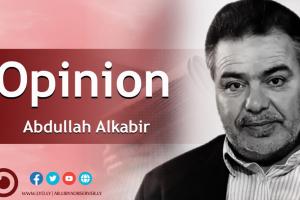By Abdullah Alkabir, political writer and commentator
Drifting towards the abyss

Perhaps the statement/message from the UN mission in Libya to the group of members of the House of Representatives and the High Council of State, who met in Tunisia a few days ago, is the clearest and most realistic of all its previous statements and declarations, as the statement responds to the meeting, its goals, and its outcome in a polite and at the same time, firm language .
The meeting brought together blocs and personalities whose orientations were well-known in the two chambers, without observing the accepted rules of communication between the two chambers, which is what the two chambers were keen on in previous dialogues, with the exception of the last period of Al-Mishri’s presidency of the HCS, when he concluded a deal with his counterpart Agila Saleh, but the deal did not work. It only reaped failure and aggravated the crisis , as all dialogues between the two chambers, at the level of subcommittees or the presidency, did.
Some members of both chambers insist on repeating the attempts despite their proven failure, and the reason was stated indirectly in the mission’s statement, which is that the political decision in the current Libyan situation is no longer in the hands of the local parties, but rather the regional and international parties involved in the conflict, who have the upper hand in engineering any transfer of power, and this was the case from the Sukhirat Agreement to the Tunis-Geneva Agreement.
There is no way to gradually restore sovereignty over national decision-making other than insisting on going back to the people to lead change through elections.
The mission's message included, between the lines, a rebuke to the representatives and members gathered, reminding them that they only represent themselves, and that the dialogue that could mark the beginning of Libya's exit from its crisis must include all or the majority of the parties. “We must acknowledge that this meeting of yours cannot be a substitute for a broader dialogue, with greater participation, and a more comprehensive agenda.”
Candidly and directly, the statement/message accuses them, in its final lines, of bringing Libya closer to drifting into the abyss, because of their insistence on remaining in their positions, and making their personal interests override the interests of the state and the people. “A lot of time has been wasted for Libya and its people. And every day you insist on remaining in your positions, or other parties maintain their positions, brings Libya dangerously closer to the brink of the abyss. You must restrain this relentless creep toward the abyss and resort to reason and wisdom to save Libya.”
The new American position explains this escalation in the tone of the UN mission in Libya towards some parties to the crisis. American diplomat Stephanie Khoury was appointed to the position of Assistant Special Envoy to Libya for Political Affairs, and the American Ambassador and Special Envoy to Libya, Richard Norland recently held several meetings with the Presidential Council and the government. and some other figures, announcing in brief statements the US administration’s support for Bathily’s initiative, which did not receive a response from some parties.
It was remarkable that these statements represent a retreat from support for the elections, to call for the formation of a caretaker government, and to link it to the importance of the participation of all Libyan actors in the political process, sponsored by the United Nations mission, to remove the remaining obstacles to the elections. The previous statements did not stipulate the formation of any type of government, but rather In a previous statement, Norland said that elections could be held even in the presence of two governments!
An international position supporting a fundamental change in Libya has not yet crystallized, which means that the conflict of interests of the countries active in the crisis does not allow such transformation now, but the escalation of the severity of the crisis, and the security and economic developments, require extending the current phase, but with reducing any emerging tensions, to remain at the brink of abyss, rather than falling into it.



